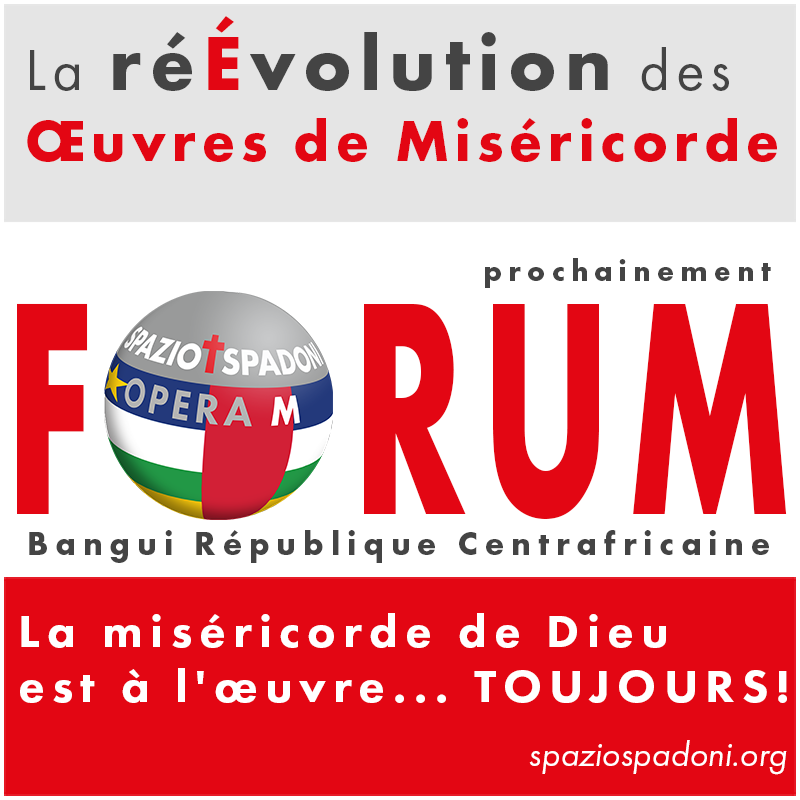
Central Africa: the Crucial Role of Works of Mercy
Central African Republic: a Church committed to writing a new page toward reconciliation, forgiveness, peace and mercy
The Central African Republic (CAR) is located, as its name suggests, right in the center of the African continent. It is a bilingual country where both Sango and French are spoken. It is surrounded by Chad to the north, Sudan to the northeast, South Sudan to the east, the Democratic Republic of Congo to the south, Congo to the southwest, and Cameroon to the west.
Overview of the Central African Republic
Since its independence in 1960, the Central African Republic has been marked by political instability and armed conflict. Political instability has led to coups, authoritarian regimes, and failed democratic transitions, with governance plagued by corruption and an inability to provide basic public services.
Armed conflicts and violence have persisted for more than two decades. The 2004-2013 period witnessed a rebellion led by several armed groups, including the Union des Forces Démocratiques pour le Rassemblement (UFDR). Among the causes of this rebellion was the political and economic marginalization of some regions and communities.
In 2013, a coup led by the mainly Muslim Séléka rebel coalition overthrew President François Bozize. This led to an upsurge in intercommunal violence, especially between Séléka militias and anti-balaka self-defense groups, predominantly Christian and animist.
This conflict has led to serious human rights violations and a humanitarian crisis. Despite the 2019 peace accords and the presence of the United Nations Multidimensional Integrated Mission in the Central African Republic (MINUSCA) since 2014, the conflict has displaced hundreds of thousands of people, both within the country and in neighboring countries, creating a humanitarian crisis with urgent needs for food, shelter, education, and health care.
The role of the local Church in promoting peace and reconciliation along the path of mercy
On November 29, 2015, the Pope inaugurated the Jubilee of Mercy in Bangui, Central African Republic, marking a symbolic and significant milestone for the Catholic Church in the country. This event takes place against a backdrop of conflict and violence in the Central African Republic, where the population has suffered greatly from religious and ethnic divisions.
The Church in the Central African Republic plays a crucial role in works of mercy, working to promote peace, reconciliation and humanitarian aid. Works of mercy, both spiritual and corporal, include such actions as supporting displaced people, caring for the poor and sick, and interfaith dialogue initiatives to ease tensions.

The Church continues to emphasize works of mercy in this region, given the pressing need. These works include food distribution, access to medical care and support for refugees; on a spiritual level, the Church focuses on reconciliation, forgiveness and promoting peace through dialogue and religious celebrations.
The Pope’s opening of the Jubilee Door in Bangui was a powerful message symbolizing the call for mercy and reconciliation in a region scarred by violence. This event reinforced the Church’s role as an agent of peace and mercy in Central African society. Through its actions, the Church is helping to heal the wounds of the past, rebuild trust and lay the foundation for lasting peace.
In this context, the spazio + spadoni movement will organize a Forum on the reEvolution of Works of Mercy in Bangui nine years after Pope Francis’ visit to the country as part of the OPERA M project to enhance works of mercy. The Bangui Forum will mark a powerful moment to actualize the Pope’s call for mercy and to spread the works of mercy in the country.
